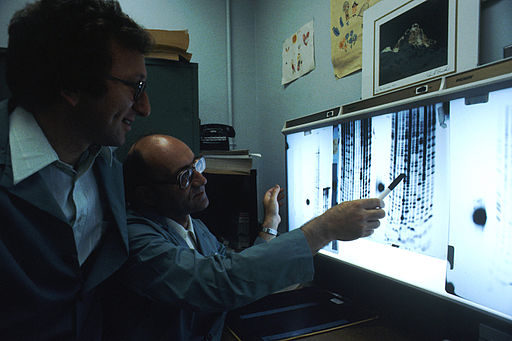Secrets of life in a spoonful of blood
By Claire Ainsworth,
Nature
| 02. 07. 2017
The intricate development of the fetus is yielding its long-held secrets to state-of-the-art molecular technologies that can make use of the mother's blood.
Life starts with a puzzle. Out of sight in a mother's womb, 3 billion letters of DNA code somehow turn into 3D bodies, all in the space of a mere 40 weeks. Fetuses form eyes, brains, hearts, fingers and toes — in processes that are meticulously coordinated in both time and space. Biologists have pieced together parts of this puzzle, but many gaps remain.
Now, a crop of molecular technologies is giving scientists tantalizing hints about how to fill in those gaps. Improved ways of reading and interpreting the information in fetal genetic material are uncovering a raft of genes involved in human development, and letting researchers eavesdrop on the hum of gene activity before birth. They can see which genes turn on or off at pivotal moments, and sense how the environment nurtures or intrudes on this.
Even the vital life-support system that we jettison at birth — the placenta — is laying bare its secrets...
Related Articles
By Josie Ensor, The Times | 12.09.2025
A fertility start-up that promises to screen embryos to give would-be parents their “best baby” has come under fire for a “misuse of science”.
Nucleus Genomics describes its mission as “IVF for genetic optimisation”, offering advanced embryo testing that allows...
By Hannah Devlin, The Guardian | 12.06.2025
Couples undergoing IVF in the UK are exploiting an apparent legal loophole to rank their embryos based on genetic predictions of IQ, height and health, the Guardian has learned.
The controversial screening technique, which scores embryos based on their DNA...
By Frankie Fattorini, Pharmaceutical Technology | 12.02.2025
Próspera, a charter city on Roatán island in Honduras, hosts two biotechs working to combat ageing through gene therapy, as the organisation behind the city advertises its “flexible” regulatory jurisdiction to attract more developers.
In 2021, Minicircle set up a...
By Vardit Ravitsky, The Hastings Center | 12.04.2025
Embryo testing is advancing fast—but how far is too far? How and where do we draw the line between preventing disease and selecting for “desirable” traits? What are the ethical implications for parents, children, clinicians, and society at large? These...




